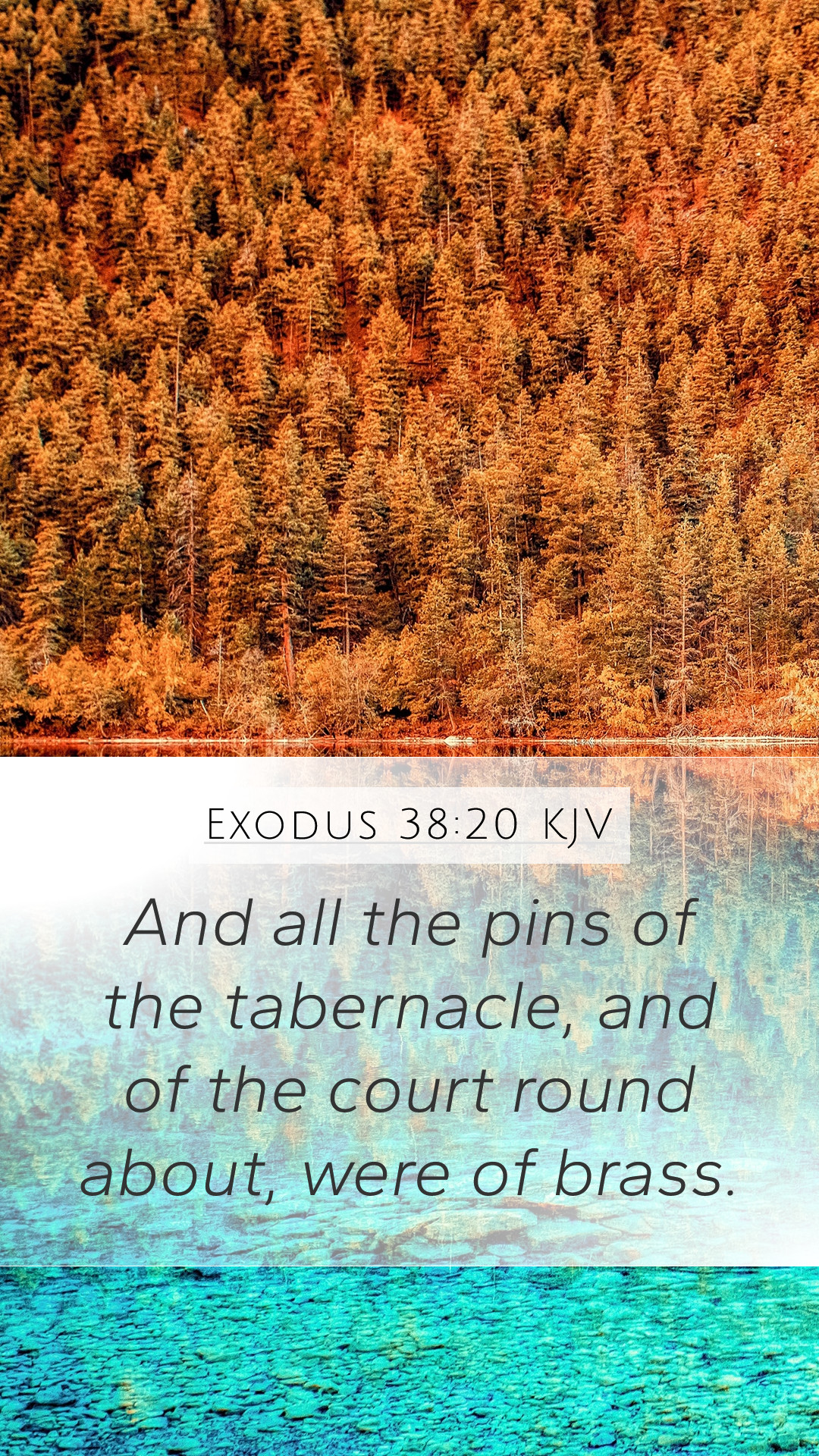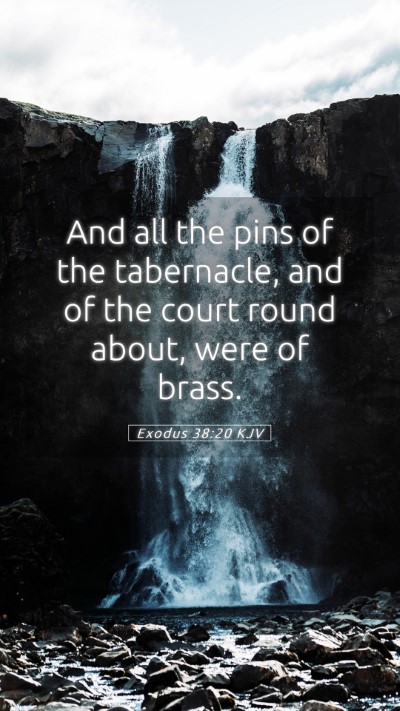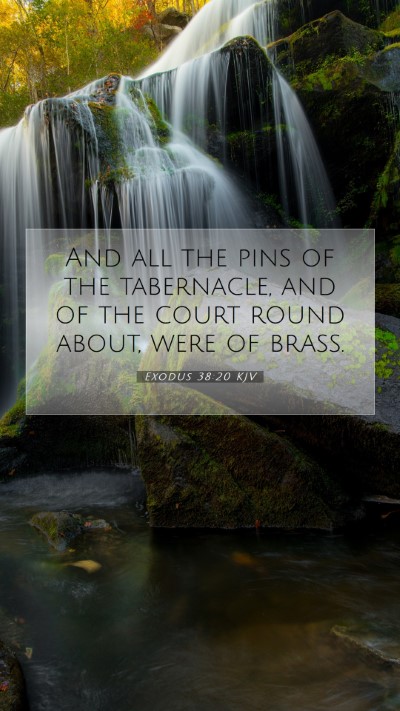Understanding Exodus 38:20
Exodus 38:20 states: "And all the pins of the tabernacle, and of the court round about, were of brass." This verse encapsulates significant themes regarding the construction and holiness of the Tabernacle, as dictated in the Book of Exodus. Below is a detailed exploration of its meaning, gathered from various public domain commentaries.
Bible Verse Commentary
The construction of the Tabernacle held immense symbolic and practical significance for the Israelites as they journeyed through the wilderness. Matthew Henry emphasizes the importance of every component of the Tabernacle, stating that each item signifies a part of God's covenant relationship with His people. The brass pins, in particular, represent stability and strength, suggesting that God's presence is anchored amongst His people.
Albert Barnes notes that brass was a material associated with judgment and service. In the context of the Tabernacle, the brass pins indicate that the structure was designed not just for beauty, but also for the rigorous demands of worship and sacrifice. The durability of brass signifies the eternal nature of God's covenant with Israel.
Adam Clarke elaborates further on the physical construction, suggesting that the pins, which held the curtain and created the perimeter of the sacred space, were essential for maintaining the integrity of the structure. His commentary identifies these pins as vital in emphasizing the separation between the sacred and the profane, a theme pervasive throughout the Bible.
Theological Significance
The brass pins symbolize the strength and permanence of God's word and promises. This construction detail reminds believers of God’s unchanging nature and the secure foundation on which their faith stands. The idea that God’s sanctuary is protected and defined through such elements can lead to deep reflections in Bible study groups and personal devotions.
Application in Daily Life
Understanding Scripture, particularly passages such as Exodus 38:20, allows believers to draw parallels to their own lives. Just as the Tabernacle was a meeting place for God and His people, individuals are called to be a living Tabernacle, creating places of worship and devotion in their hearts. The concept of being anchored in faith can help engage in Bible study lessons and foster deeper connections within Bible study groups.
Bible Study Insights
- Symbolism of Materials: Explore how different materials used in the Tabernacle serve symbolic purposes.
- God's Presence: Reflect on what it means for God to dwell among His people and the implications of this relationship.
- Building Faith: Discuss the ways in which believers can build a strong foundation in their faith, akin to the durable construction of the Tabernacle.
Cross References
- Exodus 26:1 - Details the curtains of the Tabernacle and their significance.
- Exodus 27:19 - Further instructions on materials used in the construction of the Tabernacle.
- Hebrews 9:1-5 - References the Tabernacle and its furnishings in the context of the New Covenant.
- Numbers 3:36-37 - Discusses the responsibilities regarding the Tabernacle's care.
Conclusion
In conclusion, Exodus 38:20 serves as a pivotal verse in understanding the broader narrative of the Israelites' journey and their relationship with God. Through careful Biblical exegesis and Scripture analysis, we glean insights not just into historical contexts but also into practical applications for our modern lives. As believers engage in Bible study resources, let this verse encourage reflection on the strength of faith and the sacredness of God's presence among His people.


